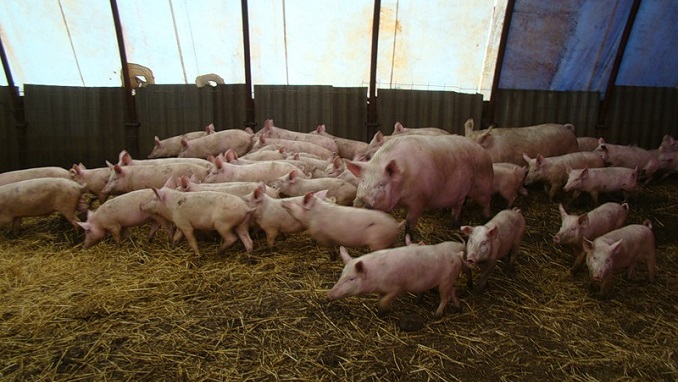Despite having almost reached self-sufficiency in the pork industry, Russian companies are expected to increase production capacities by 900,000 tons over the next four years, Global Meat News reports.
Speaking at an industry conference in Moscow, Yuri Kovalev, chairman of the Russian Union of Pork Producers, predicted that with this growth, the overall Russian pork production is expected to reach 4.4 million tons by 2022.
While the big commercial producers will gain production by 1.1 million tons from 2017 to 2022, in the segment of backyard farms there will be a decline in output of around 200,000 tons, Kovalev estimated. He believes that the main growth in the industry will be provided by projects implemented by top-20 companies. At the moment, their joint share in production is close to 63%, while in 2022 this figure is going to reach 76%.
This is in line with global trends, as in most developed countries, the top-20 biggest pig producers account for 80% from the overall country pork production and this not necessarily indicates a monopolization of the market, Kovalev explained.
In total, the investments into the Russian pig industry will be close to $5.62 billion in the period from 2017 to 2022, Kovalev claimed. More than half of this amount will be allocated by top-three companies, Miratorg, Rusagro and Cherkizovo. Miratorg alone plans to invest $1.5 billion in expansion of its production capacities, he said.
Kovalev said that the upcoming increase in production will push down the prices on the domestic market, and this is expected to give an additional impetus to the increase in demand for pork among Russian customer.
In addition, the Russian Union of Pork Producers expects pork exports from Russia to increase by 200,000t to 300,000t in the coming four years, according to Kovalev. Basically, it is important that all projects are being implemented in stages and this means that even if something goes wrong and there will be no room for new quantities, a part of the projects could be delayed, according to Kovalev.












